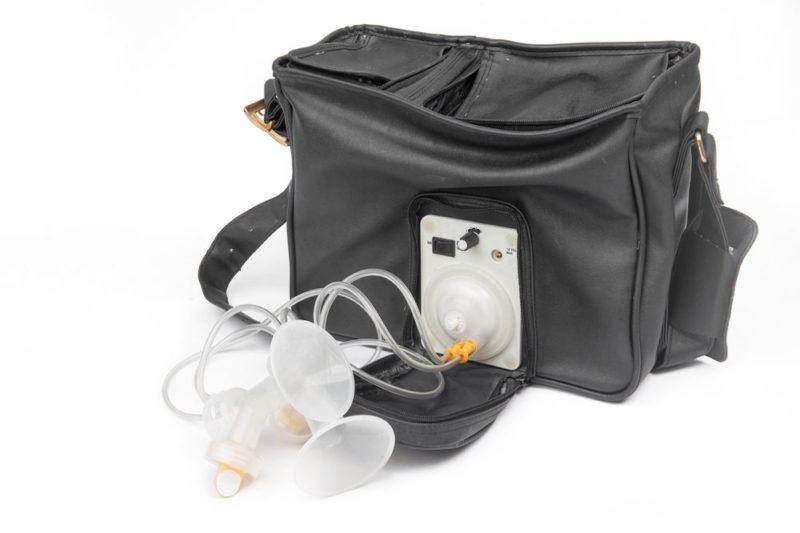Lawsuit: Colorado Business Fired Employee Who Asked to Pump Breast Milk at Work
A lawsuit filed in federal court claims a Colorado business fired an employee rather than accommodate her request to pump breast milk at work.

Three-quarters of women entering the labor force will become pregnant at some point, and despite state and federal laws protecting them from workplace discrimination, stories like Ashley Provino’s are all too common. Provino, a hairstylist in Grand Junction, Colorado, was fired from her job, in violation of state and federal anti-discrimination laws, for asserting her right to pump breast milk at work.
That’s according to the allegations in a lawsuit filed this week by the American Civil Liberties Union and the ACLU of Colorado on behalf of Provino, who requested permission from her employer, Big League Haircuts, to take a short break every four hours in the back room of the hair salon to express breast milk.
When Provino first approached her employer about returning to work at the end of her maternity leave, she told him that she could return to full-time work provided that she was permitted short breaks every four hours to pump breast milk, according to the complaint filed in federal court.
Her boss abruptly ended the conversation once Provino raised the issue of pumping breast milk at work. When Provino tried to raise the issue again, this time with her boss’s wife, who had helped with management decisions, Provino was told her boss was uncomfortable discussing her pregnancy-related issues, including issues related to Provino’s decision to breastfeed her baby.
When Provino’s employer finally discussed making accommodations for Provino to pump breast milk at work, the conversation did not go well. Provino’s boss asked her what pumping breast milk at work would entail, including how much time was required and whether Provino became “dizzy” or “nauseous” after doing so, according to the complaint.
After Provino explained that pumping breast milk required approximately 15-20 minutes of time and that there were no side effects, her boss stated that he was “not okay” with Provino pumping breast milk at work. Provino’s employer then made a notation in his notebook that she was “physically unable” to work full time, according to the complaint.
When Provino saw what he had written, she told her boss that she was in no way physically unable to work a full shift but the note in her employment file was not changed. Rather than accommodate Provino’s request to pump breast milk at work, her employer instead cut her hours dramatically and eventually fired her.
In 2008, the Colorado legislature passed the Workplace Accommodations for Nursing Mothers Act, which Provino’s lawyers argue unequivocally recognizes the societal and health benefits of breastfeeding and requires employers to make reasonable accommodations to allow new mothers to express milk at work.
The ACLU complaint cites the 2008 statute, along with federal laws that prohibit sex discrimination, pregnancy discrimination, and retaliation for protesting such discrimination as the basis of Provino’s claims.
“The recently enacted laws guaranteeing the right to pump at work are designed to make sure that women like Ashley Provino can do what they believe and what medical professionals agree is best for their babies, while still keeping their jobs,” Galen Sherwin, senior staff attorney with the ACLU Women’s Rights Project, said in a statement following the filing of the complaint. “No woman should face retaliation for asserting her rights under these laws.”
Provino’s lawsuit comes as the Supreme Court considers the issue of workplace discrimination against pregnant employees and what duty, if any, employers have to accommodate pregnant employees.
As Provino’s case illustrates, that discriminatory treatment can extend beyond an employer’s refusal to make a physical accommodation for an employee while she is pregnant to making it difficult, if not impossible, to return to work full-time while breastfeeding.
Provino’s case is hardly an isolated incident. In September 2012, the ACLU of Colorado and the ACLU Women’s Rights Project negotiated a settlement with a Jefferson County charter school on behalf of Heather Burgbacher, a teacher who lost her job after she requested accommodations to pump breast milk at work. The ACLU of Colorado also worked with DISH Network earlier this year to improve accommodations for nursing mothers at the company’s corporate headquarters following complaints from employees that the conditions provided by the company lacked adequate space and privacy for employees who needed to pump.
“Discrimination against breastfeeding mothers in the workplace is not only illegal, it is also bad for Colorado families and businesses, because it forces women out of the workplace,” ACLU of Colorado cooperating attorney Paula Greisen of King Greisen LLP said in a statement.
Provino’s employer has not yet responded to the lawsuit.

